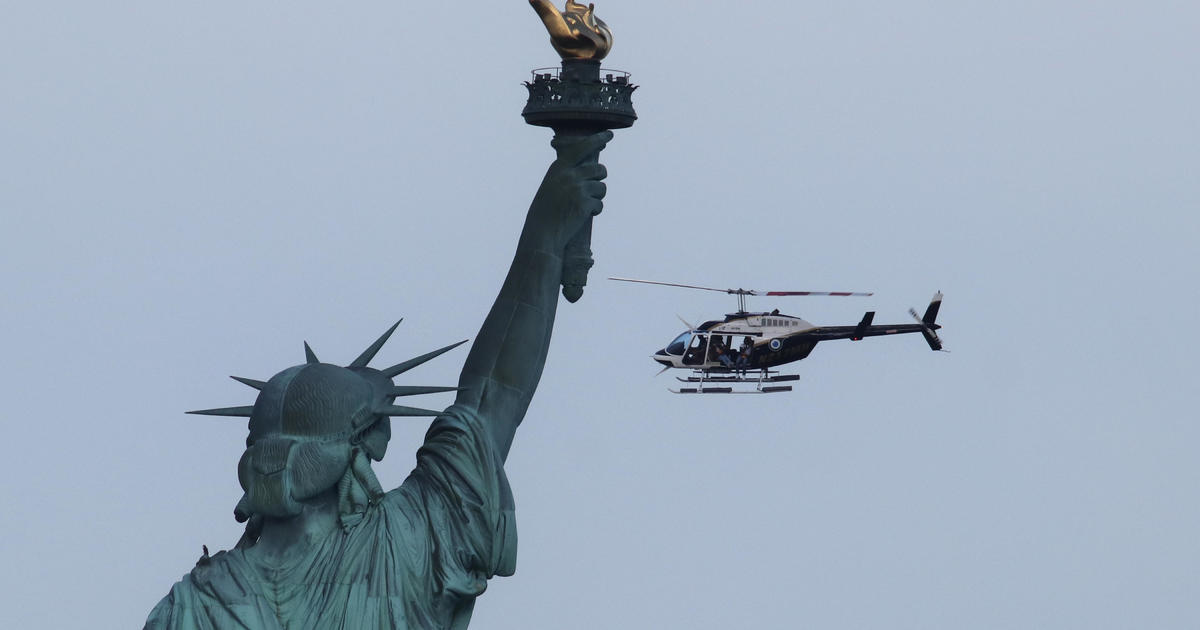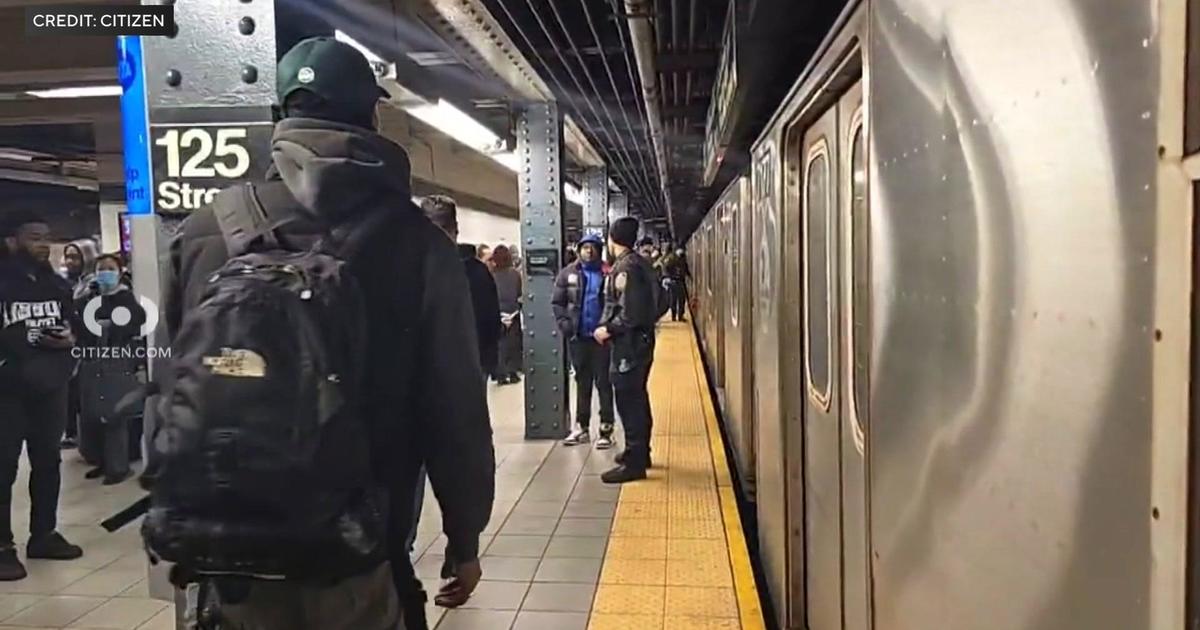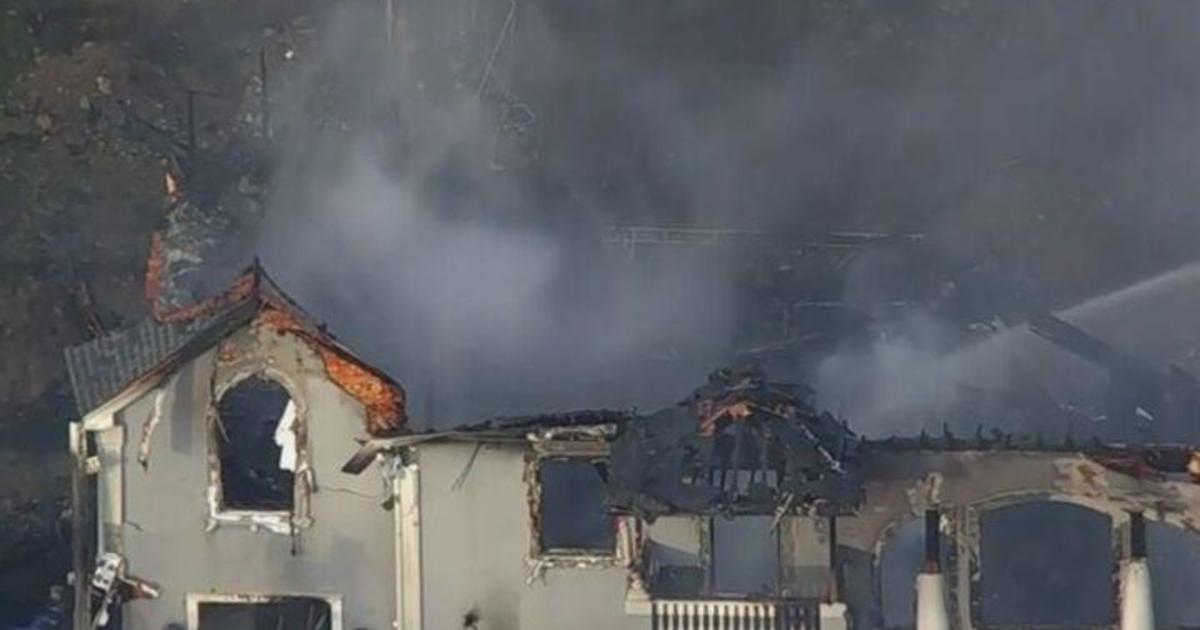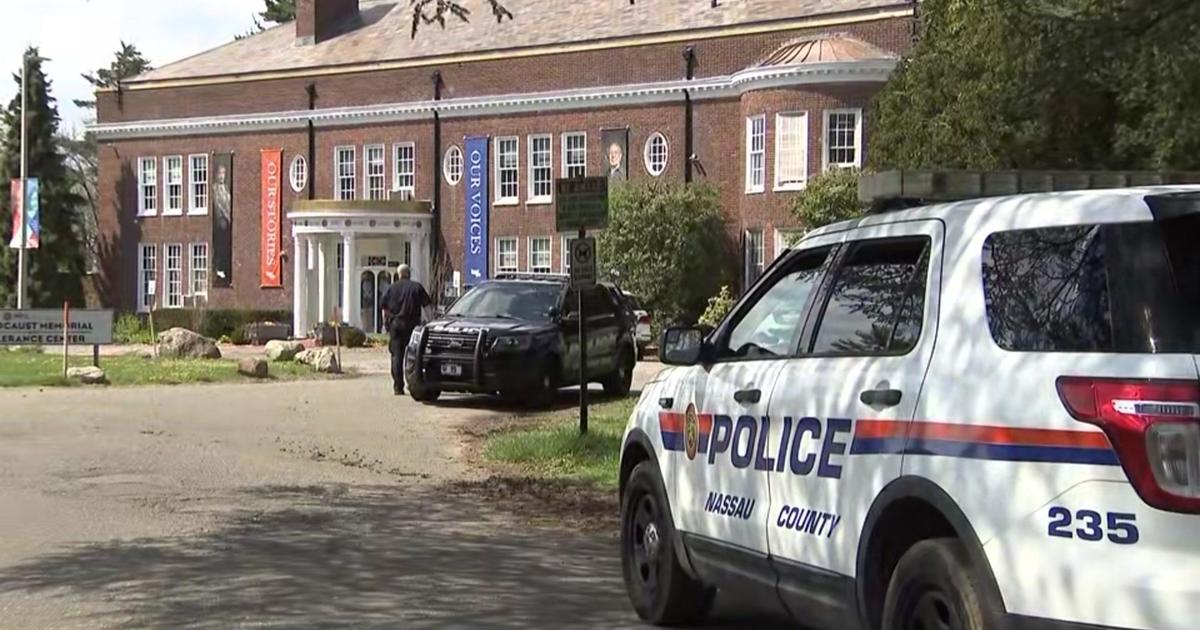De Blasio To Push For Tax On Wealthiest New Yorkers To Fund Subway Fix
NEW YORK (CBSNewYork/AP) — Mayor Bill de Blasio wants to tax the wealthiest 1 percent of New Yorkers to fund repairs and improvements to the beleaguered subway system.
As CBS2's Hazel Sanchez reported, de Blasio is expected to announce the plan on Monday. It would also reduce fares for the poor.
The proposal comes as the mayor and Gov. Andrew Cuomo, both Democrats, continued to squabble over responsibility for paying for repairs to the nation's largest transit system that has seen growing delays, mechanical failures, power outages and even derailments.
Metropolitan Transportation Authority Chairman Joseph Lhota recently unveiled an emergency plan that would cost $836 million to stabilize the system.
The governor offered to split the cost of the emergency plan with the city, but the mayor refused to commit money to support it. Indeed, just last month, Mayor de Blasio said New York City residents would not be paying more money to support mass transit.
"I think the money the MTA has is not being spent and is not being spent properly," the mayor said last month in a news conference onboard an F Train in Brooklyn. "Let's do that before you talk about anyone spending more money. Let's use the money we have."
City officials said that the mayor's new plan is meant as a long-term solution, not a quick fix. It aims to generate nearly $800 million annually and must be approved by state lawmakers.
"Instead of searching for a quick-fix that doesn't exist, or simply forking over more and more of our tax dollars every year, we have come up with a fair way to finance immediate and long-term transit improvement," de Blasio said in a statement Sunday.
The tax would increase the top income tax rate from about 3.9 percent to 4.4 percent for married couples who make more than $1 million per year and individuals making more than $500,000, city officials said. It would affect about 32,000 of New Yorkers filing taxes in the city, or just less than 1 percent, officials said.
As part of the plan about $250 million would fund the half-price MetroCard program for low-income riders.
"Rather than sending the bill to working families and subway and bus riders already feeling the pressure of rising fares and bad service, we are asking the wealthiest in our city to chip in a little extra," de Blasio said.
The MTA said Lhota learned about de Blasio's millionaires' tax proposal from media reports. Lhota released a statement saying, "After saying the MTA doesn't need money, we're glad the mayor reversed himself."
Cuomo said Sunday, "The city should partner with us and match the state funding now so we can begin Chairman Lhota's overhaul plan immediately and move forward."
Queens State Senator Mike Gianaris (D-12th), who proposed a similar plan in Albany, says better subways are a benefit to all New Yorkers -- including the top one percent.
"Now at a time, when people are doing well as a result of an efficient transit are doing better than ever, I think it's completely fair to say that we should ask them to do a little bit more," Gianaris told WCBS 880's Mike Smeltz.
Most New York City transit riders who spoke to CBS2's Sanchez Sunday agreed that the subway and bus system is in need of an upgrade.
"Cleanliness, sanitation, timing," one woman said.
"The platforms are hot; congested," added Kiana McGeachy of Coney Island, Brooklyn.
"It's embarrassing to represent New York this way," added Rosalee Liebman.
But not everyone is ready to get onboard with the mayor's plans to tax the wealthy.
"The wealthy are already paying for most of the taxes. Real estate's paying for most of the taxes -- real estate taxes," Liebman said. "So they already do pay."
"Don't support that at all," said Hallie Neill. "To be taxed more, when we already have had our fares increased?"
But McGeachy said: "I think that sounds pretty fair to me. I'm not rich, so it's not coming out of my pocket."
"It sounds political," a man added.
An advocacy group also endorsed the plan Sunday.
"We think it's a good plan," Nick Sifuentes, deputy director of the Riders Alliance, told 1010 WINS' Roger Stern. "We think it's the right step for the mayor to be taking at this time."
New Yorkers already contribute to the agency through other taxes and fees.
The current five-year transit system capital plan, which covers upkeep for the subways, the Long Island Rail Road and Metro-North, plus other pieces of the transit system, is about $29 billion. The city has pledged $2.5 billion and the state $8.3 billion, plus Cuomo recently pledged an additional $1 billion.
But that doesn't include the cost of the emergency funds transportation officials say are necessary to fix immediate problems. Lhota said in a statement Sunday that the agency needs additional short-term emergency funding now.
"There's no question we need a long-term funding stream, but emergency train repairs can't wait on what the state legislature may or may not do next year," Lhota said. The MTA chair learned about the de Blasio proposal from reading a report in the New York Times.
Cuomo echoed the sentiment, calling on the mayor to fund the emergency plan.
"Riders suffer every day and delaying repairs for at least a year is neither responsible nor responsive to the immediate problem, or riders' pain," he said in a statement.
But some New Yorkers do not believe a new tax should be the city's part in the deal.
"Tax is a three-letter word, but's really a four-letter word for everybody," said Theodore Lambrinos of the Upper West Side.
The number of subway delays has tripled in the past five years, to 70,000 per month, and rush hour cancellations and delays on the Long Island Rail Road were at the highest level in 10 years, according to a June report.
"There is no doubt that we need a long-term dedicated funding stream," Cuomo's statement continued. "But there is also no doubt that we cannot wait to address the current crisis."
About 5.7 million people ride the subway on an average weekday.
The finger-pointing by city and state officials is due in part to the transit agency's messy ownership structure. According to Lhota, 1981 law was meant to help the city during a major financial crisis, when it could not pay capital costs and the subways were in much worse shape than they are now. The state picked up the tab, but it was never meant to be permanent, he said.
Cuomo is coming up with his own ideas to bring more revenue to the MTA. He is looking to propose different forms of congestion pricing – including an added fee for for-hire vehicle services such as Uber and Lyft.
As for de Blasio's millionaires' tax plan, state Senate sources told CBS2 it likely will not be passed.
(© Copyright 2017 CBS Broadcasting Inc. All Rights Reserved. The Associated Press contributed to this report.)



